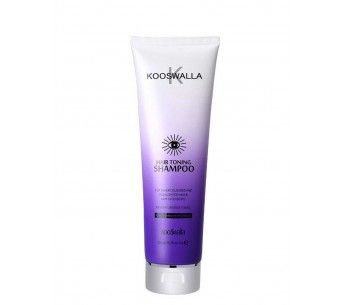Are your Russian hair extensions turning orange? What to do about it?

With the arrival of fine summer days, you may have noticed that your hair extensions, once a sublime ash tone, are starting to turn an orange hue. What to do in such a situation? It's important to know that this is a well-known and, above all, avoidable chemical reaction.
The cause:
Avobenzone (Butyl Methoxydibenzoylmethane) and octocrylene are two chemical compounds renowned for interacting with the dyes used in hair extensions, causing a change in shade. This chemical process can transform your beautiful extensions into a peachy-pink tone or, in some cases, an unflattering orange hue.
These substances are frequently found in sun protection products and body sprays:
Avobenzone (Butyl Methoxydibenzoylmethane): present in 67% of formulations. This filter, although very common, is known for its tendency to degrade, thus becoming an endocrine disruptor.
Octocrylene, another agent present in 54.7% of formulations.
They're also found in sun sprays or thermal hair protectors! While this poses no problem on untreated hair, on color-treated hair, the natural pigments still present can react chemically, resulting in pinkish or orange coloration.
How to prevent this phenomenon:
Prefer mineral-based sunscreens containing ingredients such as titanium dioxide or zinc. Unlike chemical filters such as avobenzone, mineral sunscreens act as a physical barrier, reflecting and diffusing the sun's rays, without causing chemical reactions.
If you insist on keeping your usual sunscreen on, be sure to tie back your hair to avoid contact with your shoulders or back. Apply your sunscreen, then wash your hands thoroughly before handling your extensions. If you prefer to leave your hair loose, opt for a highly absorbable sunscreen that won't leave any residue on your hair. Allow the product to penetrate the skin before your hair comes into contact with it. However, due to the porous nature of extensions, which are made of non-living hair, we strongly advise against any contact with these potentially toxic substances.
We also advise you to limit exposure of your extensions to excessive heat, and to protect them when swimming in chlorinated pools or the sea.
Unlike our own hair, extensions don't benefit from the scalp's natural oils, which help prevent discoloration. Consequently, washing and wearing them without proper care accelerates their fading process.
Solutions:
The chemical reaction develops gradually as your extensions are exposed to these substances. If you start to notice a pinkish tinge on the tips of your extensions, there's still time to take action! Wash your extensions with a silver shampoo, like the one offered in our Real Russian Hair store. Please note that it's essential to follow the instructions for use, including soaking the extensions in a correctly dosed water/shampoo mixture.
If your extensions have recently been exposed to these harmful substances, rinse them immediately with clean water. Avoid direct exposure to the sun and any other chemical that could cause a chain reaction.
In the event that your extensions have become too pink to be restored with silver shampoo, there's always the option of recoloring them in a darker shade to mask the unwanted color.


